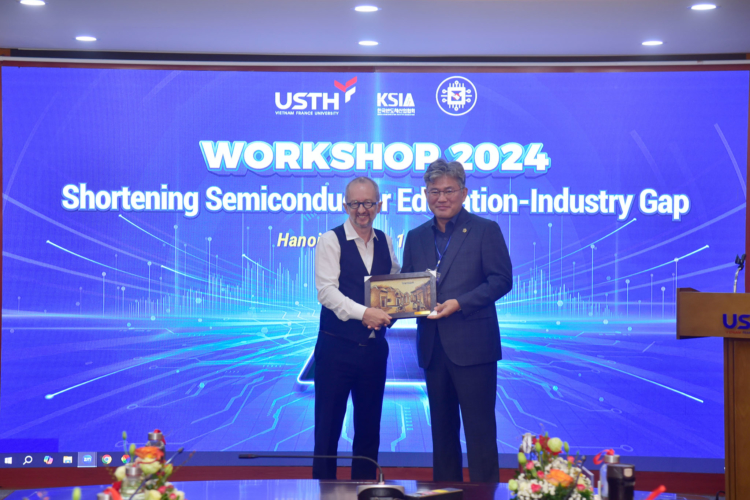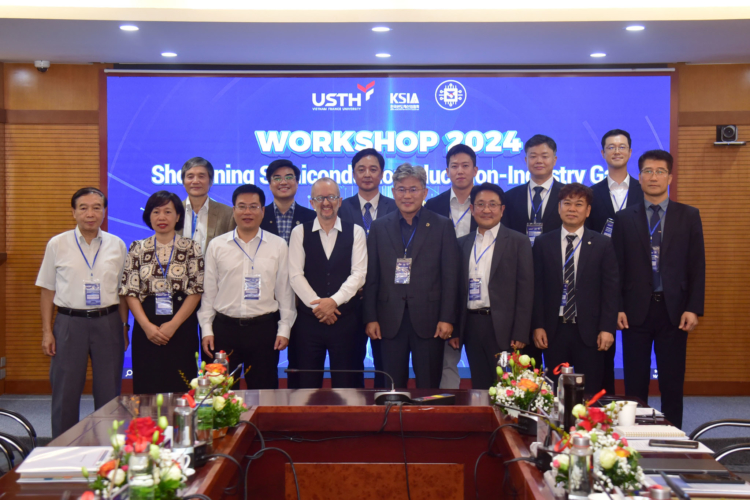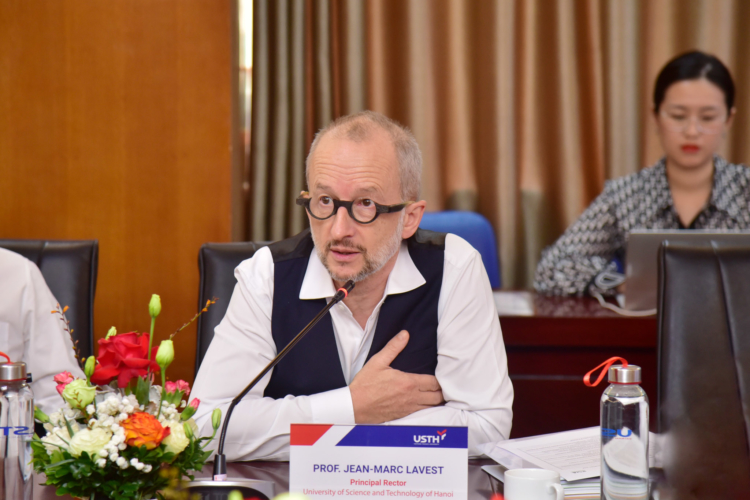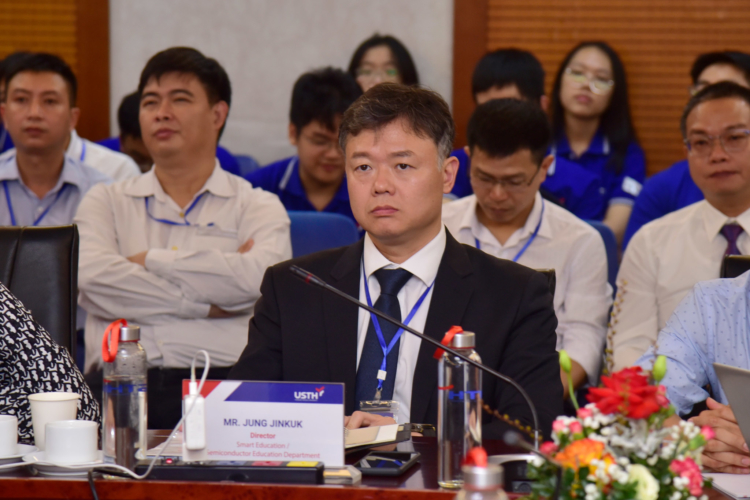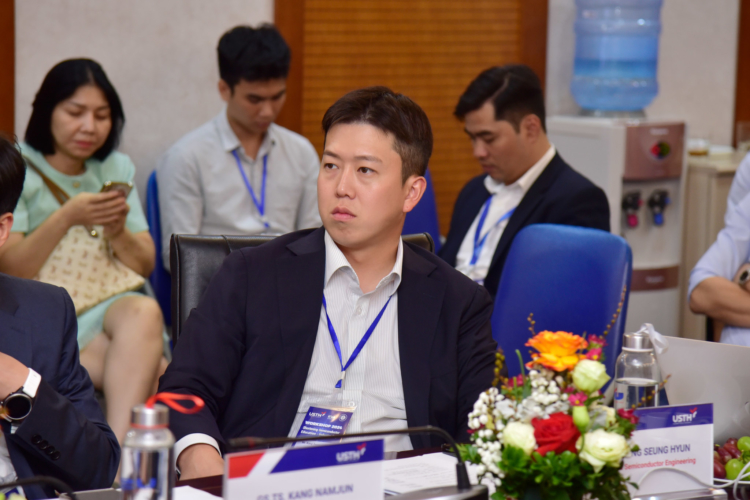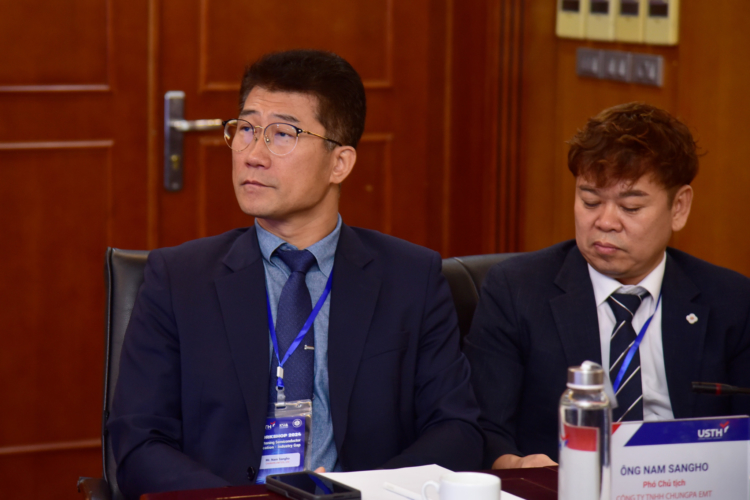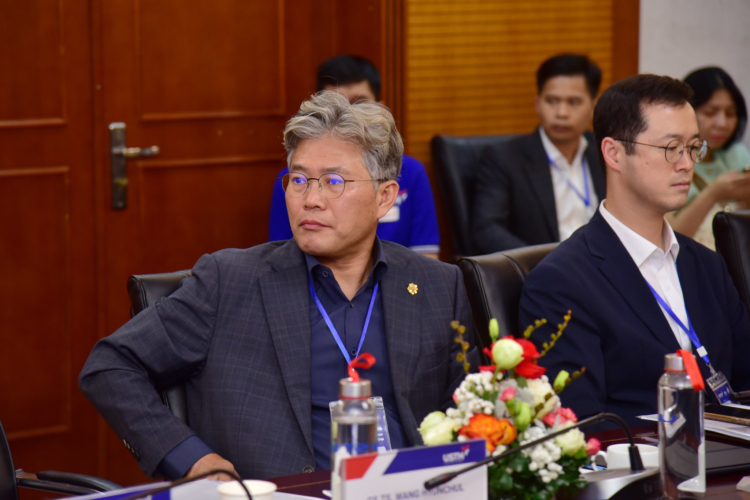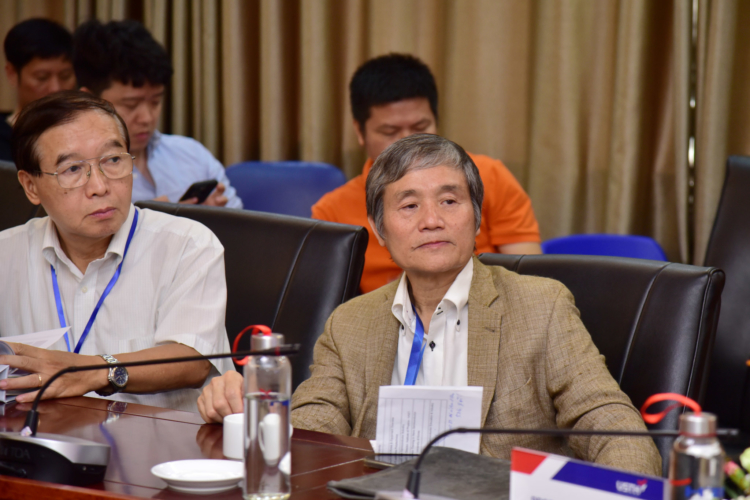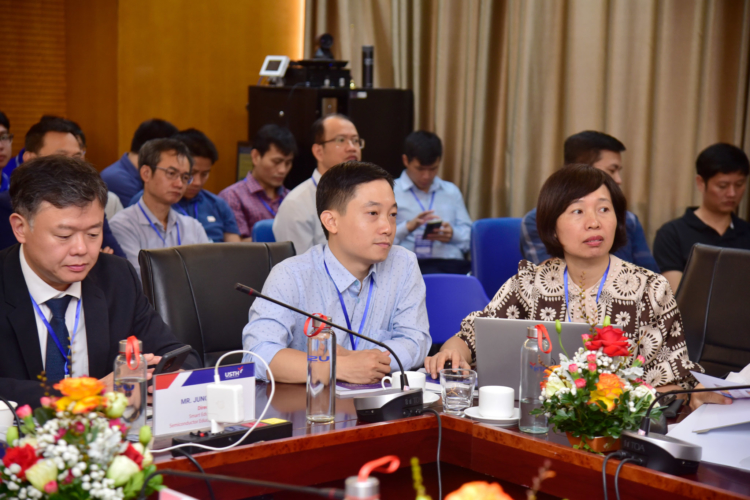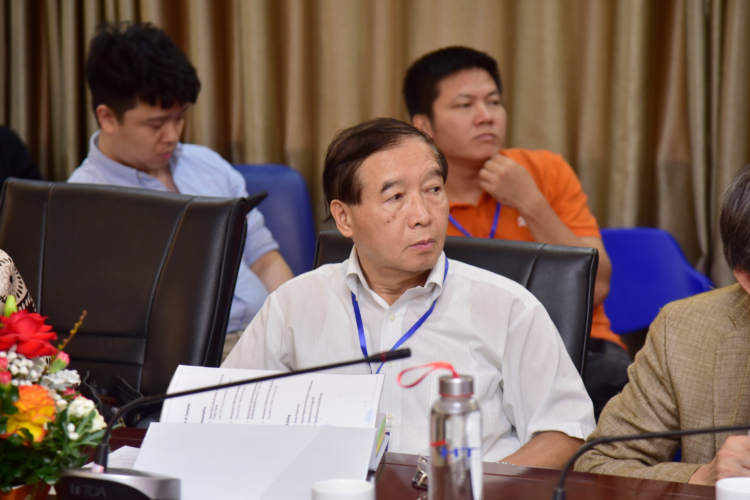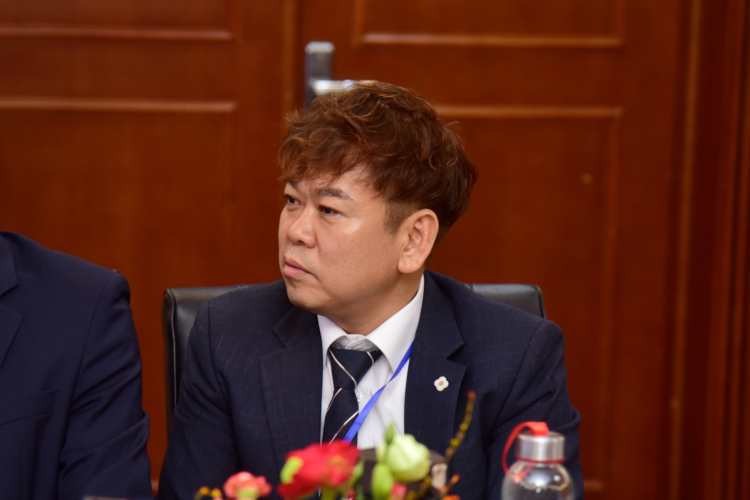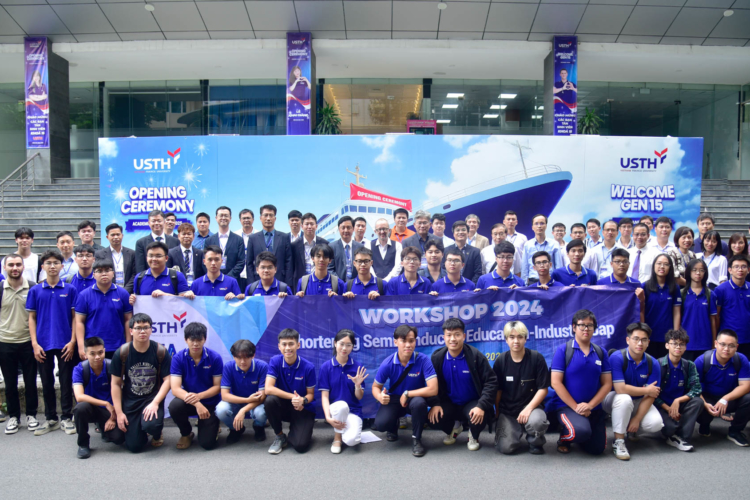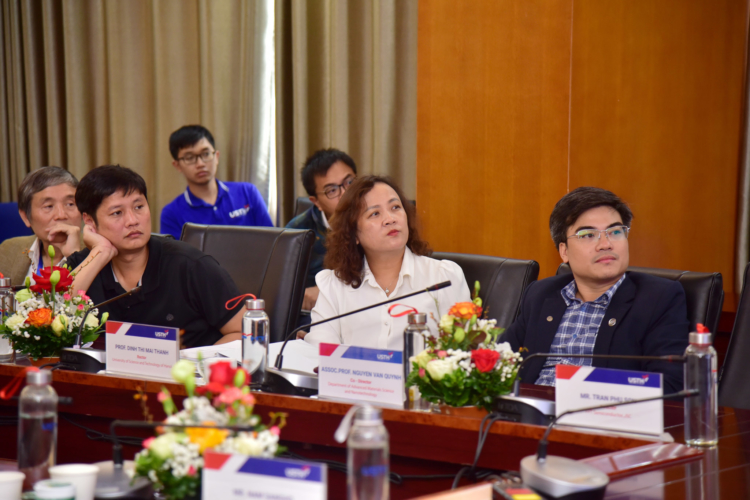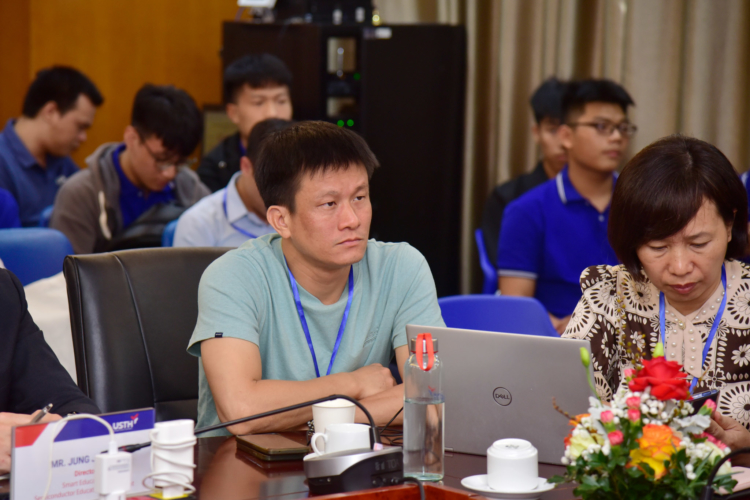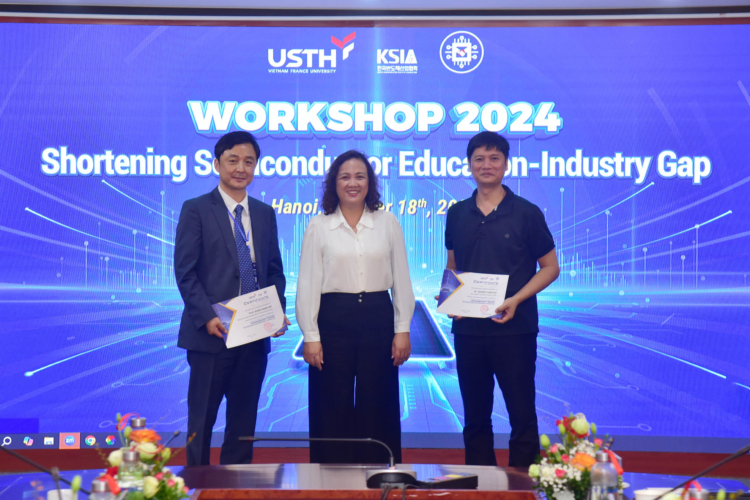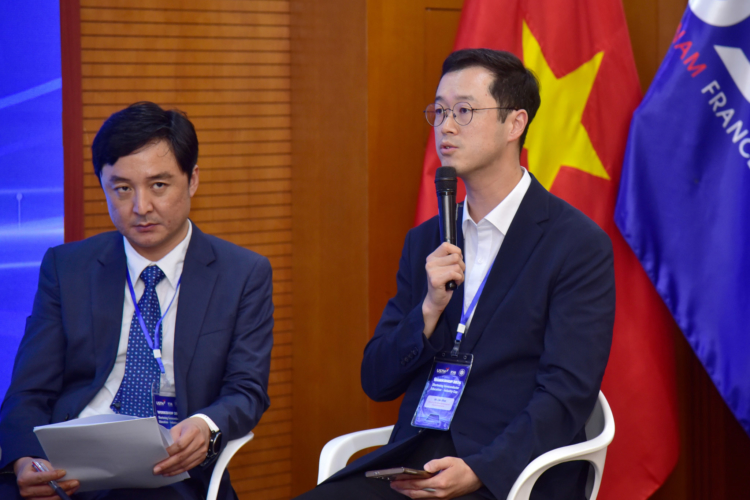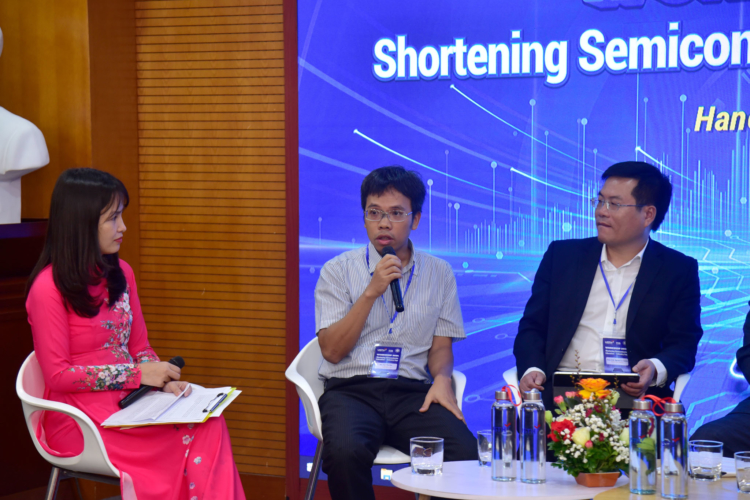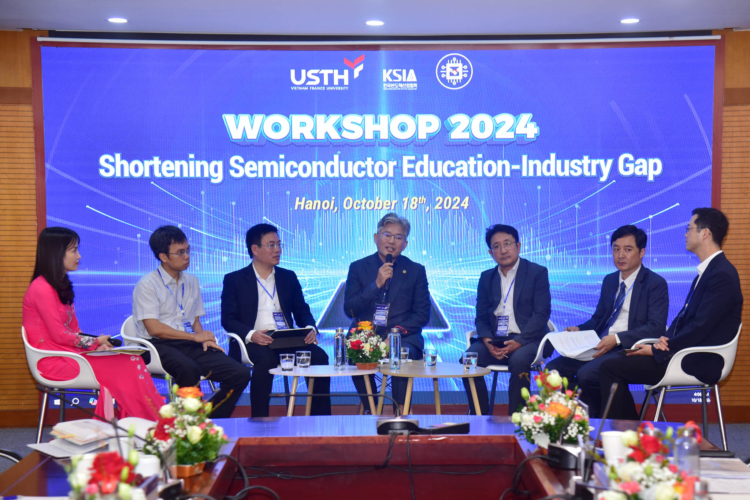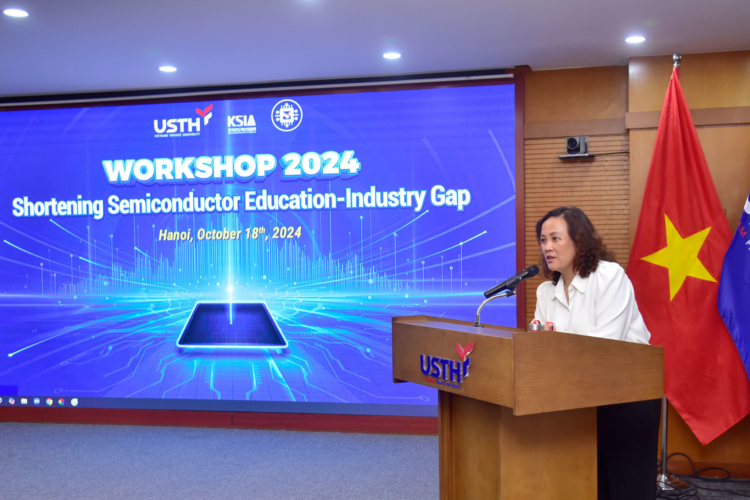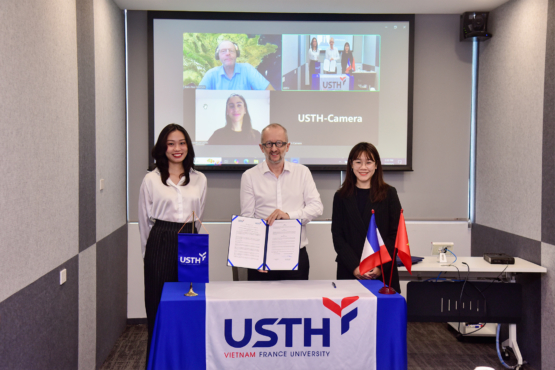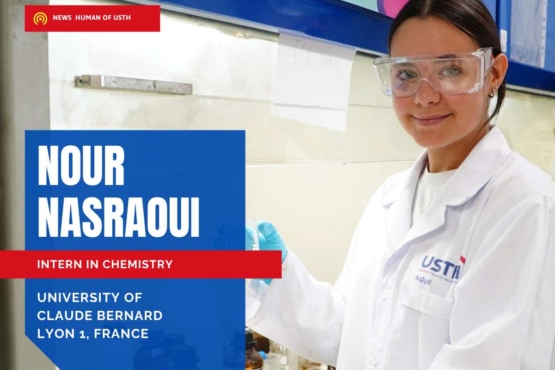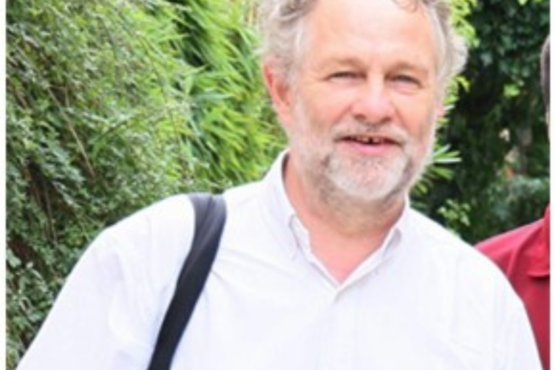On October 18, 2024, the Department of Advanced Materials Science and Nanotechnology (AMSN) at the University of Science and Technology of Hanoi (USTH), in collaboration with the Korea Semiconductor Industry Association (KSIA), successfully hosted a workshop titled “Shortening the Semiconductor Education-Industry Gap”. This event was part of USTH’s 15th-anniversary celebrations and marked the launch of the university’s new Bachelor’s program in Semiconductor and IC Technology.
The workshop “Shortening the Semiconductor Education-Industry Gap” took place at a crucial time as Vietnam continues to make significant investments in the semiconductor industry, aiming to become a key player in the global semiconductor supply chain. The Vietnamese government has identified semiconductors as a strategic industry and is working to develop human resources capable of supporting the country’s ambitions. Vietnamese universities, including USTH, are playing an important role in this effort by actively engaging in the training and preparation of skilled professionals for the sector.
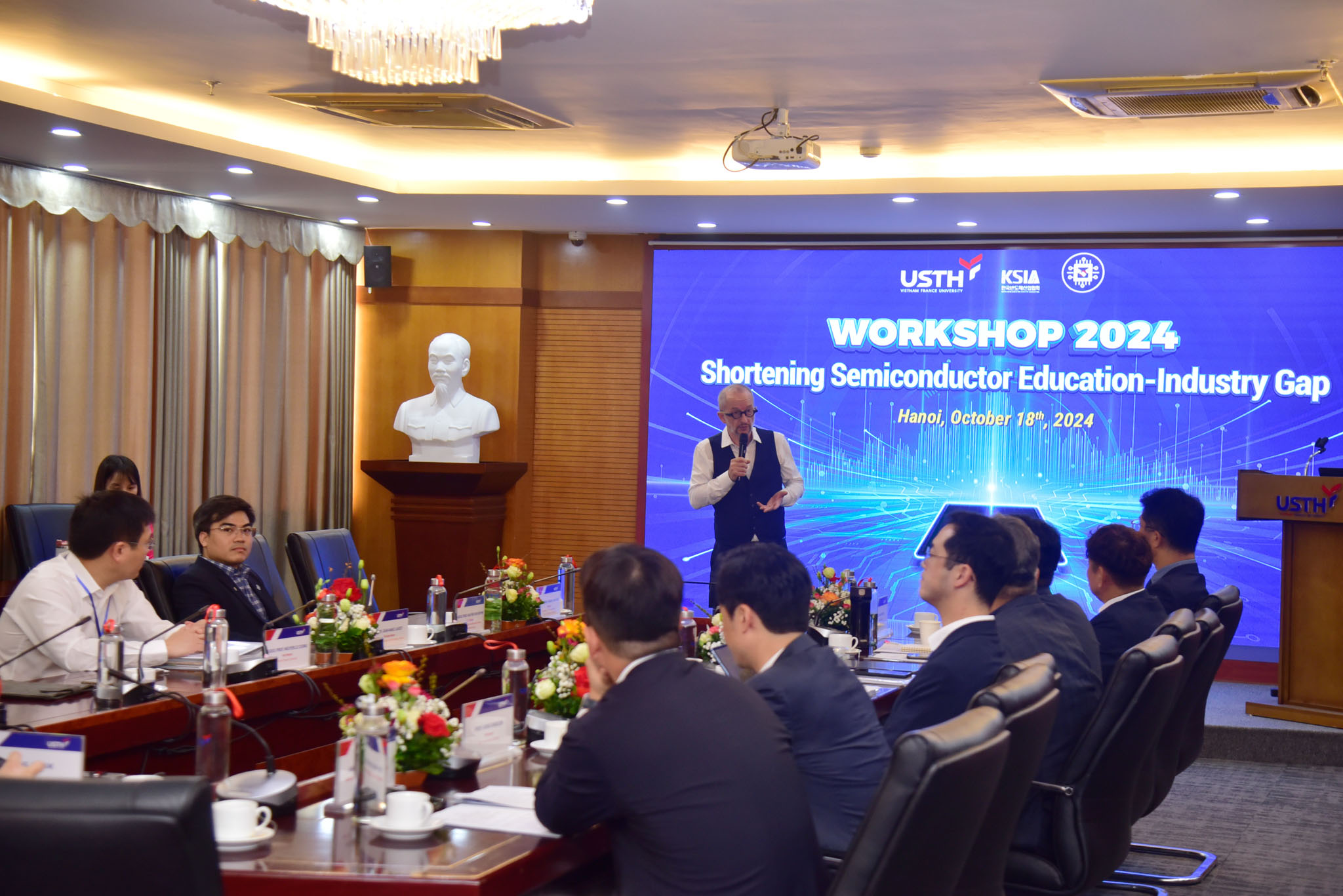
South Korea plays a significant role in the global semiconductor industry and possesses an advanced education and training system, with strong collaboration between academia and industry.
The workshop was organized to create a forum for discussing new technology trends, workforce needs, and solutions to bridge the gap between education and the demands of the semiconductor industry in Vietnam and South Korea. It aimed to provide participants opportunities to access cutting-edge knowledge, learn from real-world experiences, and network, thereby fostering cooperation and narrowing the gap between education and the semiconductor industry.
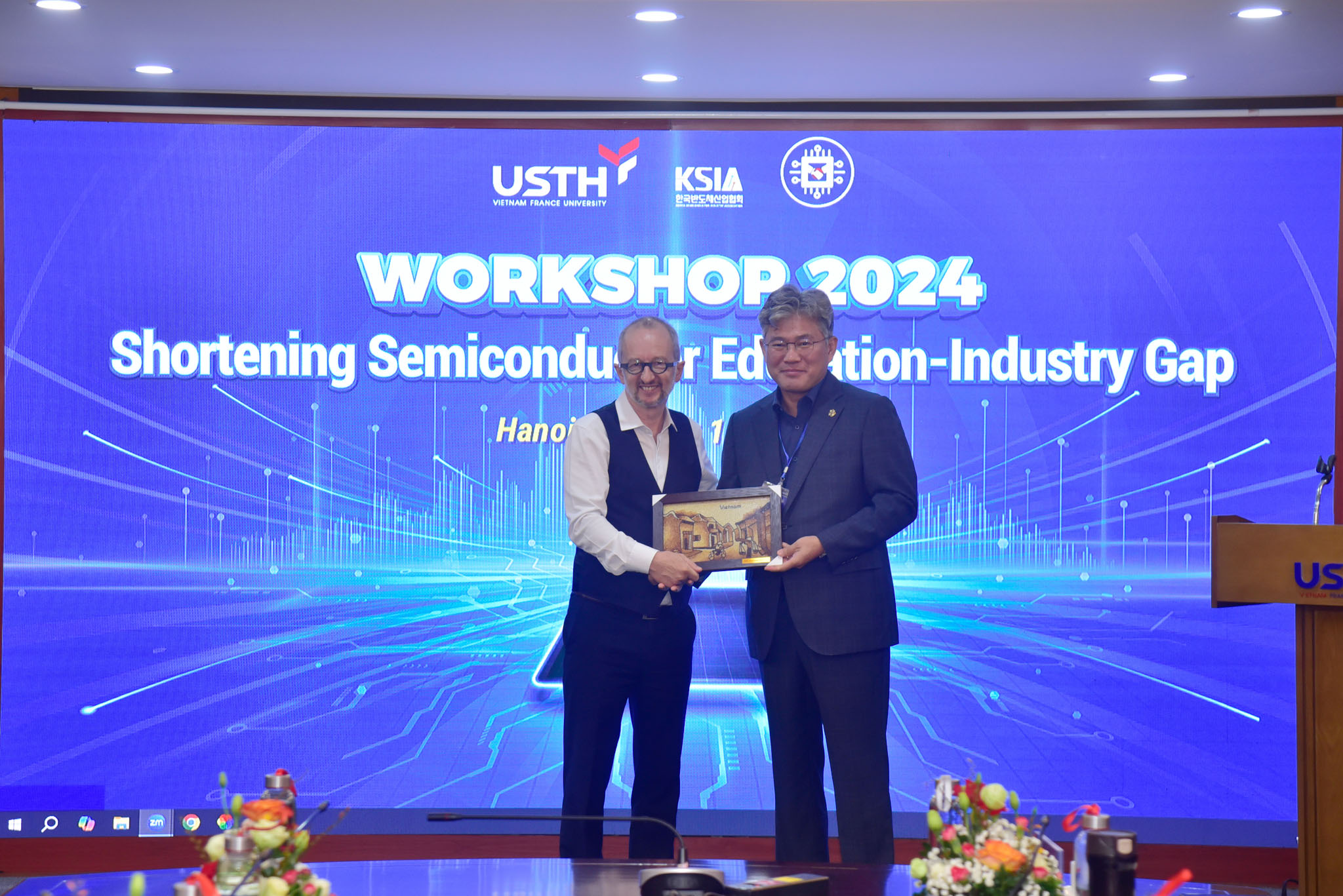
The workshop was attended by Korean experts such as Mr. Lee Jihan – Director of the Korea Semiconductor Industry Association (KSIA), Prof. Wang Hyunchul – Korea Polytechnics, Prof. Lee Sunjong – Korea Polytechnics, Prof. Kang Namjun – Tech University of Korea, Mr. Kim Jinsun – Vice Chairman of the Korea Meister Technicians Association, Mr. Jung Jinkuk – Director of Smart Education, and Mr. Nam Sangho – Vice President of Chungpa EMT. From the Vietnamese side, attendees included Assoc. Prof. Hoang Van Phuc – Director of the Institute of System Integration, Le Quy Don Technical University, Dr. Do Hoang Tung – Deputy Director of the Institute of Physics, Assoc. Prof. Nguyen Le Cuong – Vice Rector of Electric Power University, and Mr. Tran Phu Son – Business Development Director of FPT Semiconductor. Representatives from USTH included Prof. Jean-Marc Lavest – Principal Rector, Prof. Dinh Thi Mai Thanh – Rector, Assoc. Prof. Nguyen Van Quynh – Co-Director of the Department of Advanced Materials Science and Nanotechnology, along with experts and researchers from both Vietnam and Korea.
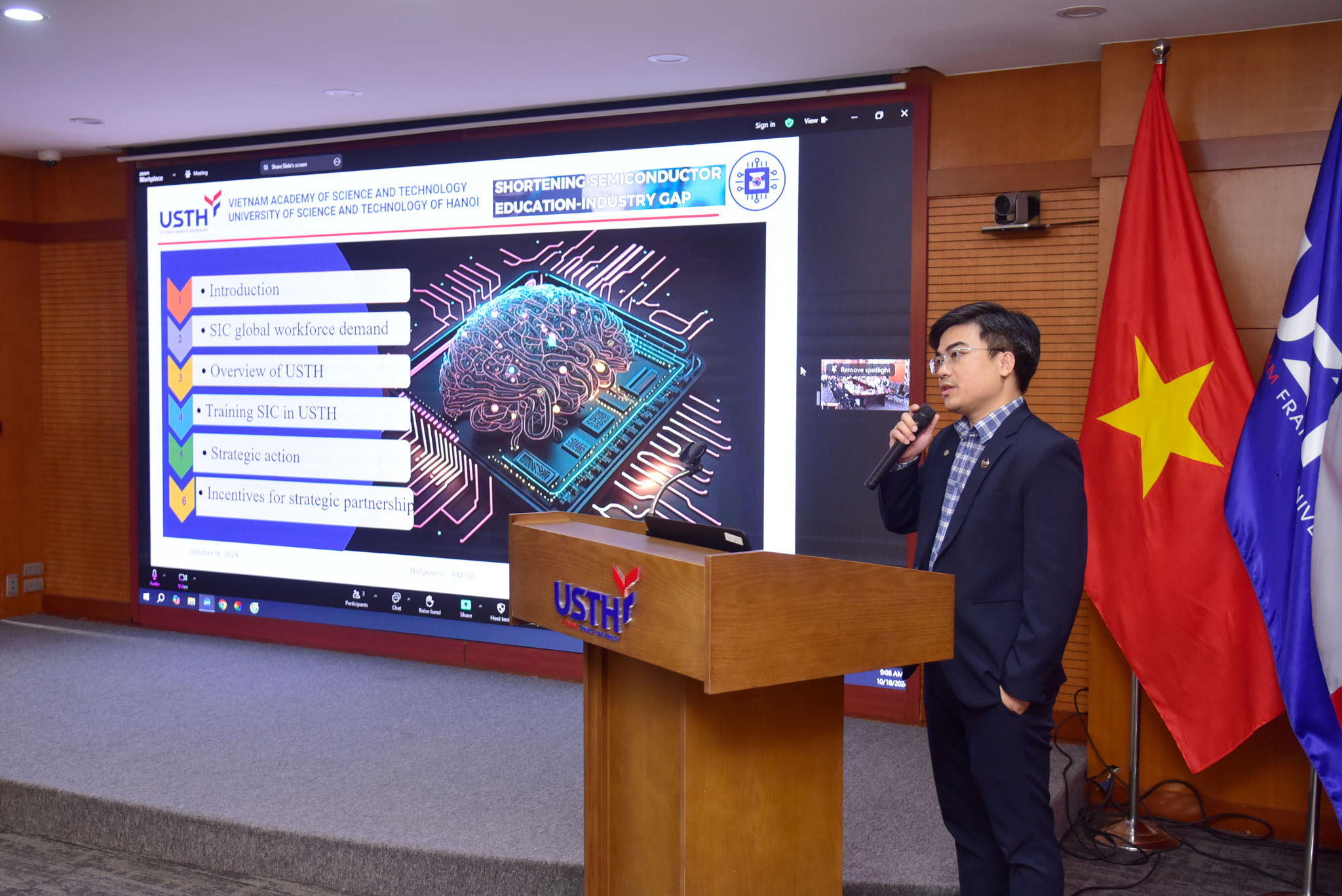
In his opening remarks, Prof. Jean-Marc Lavest, USTH’s Principal Rector, welcomed the Korean experts and noted that this was the first time USTH had hosted an event focused on the semiconductor industry – an industry currently receiving significant attention and investment from the Vietnamese government. He emphasized the importance of aligning education with the needs of the labor market and expressed hope that the participation of experts from both countries would bring valuable insights to improve semiconductor training.
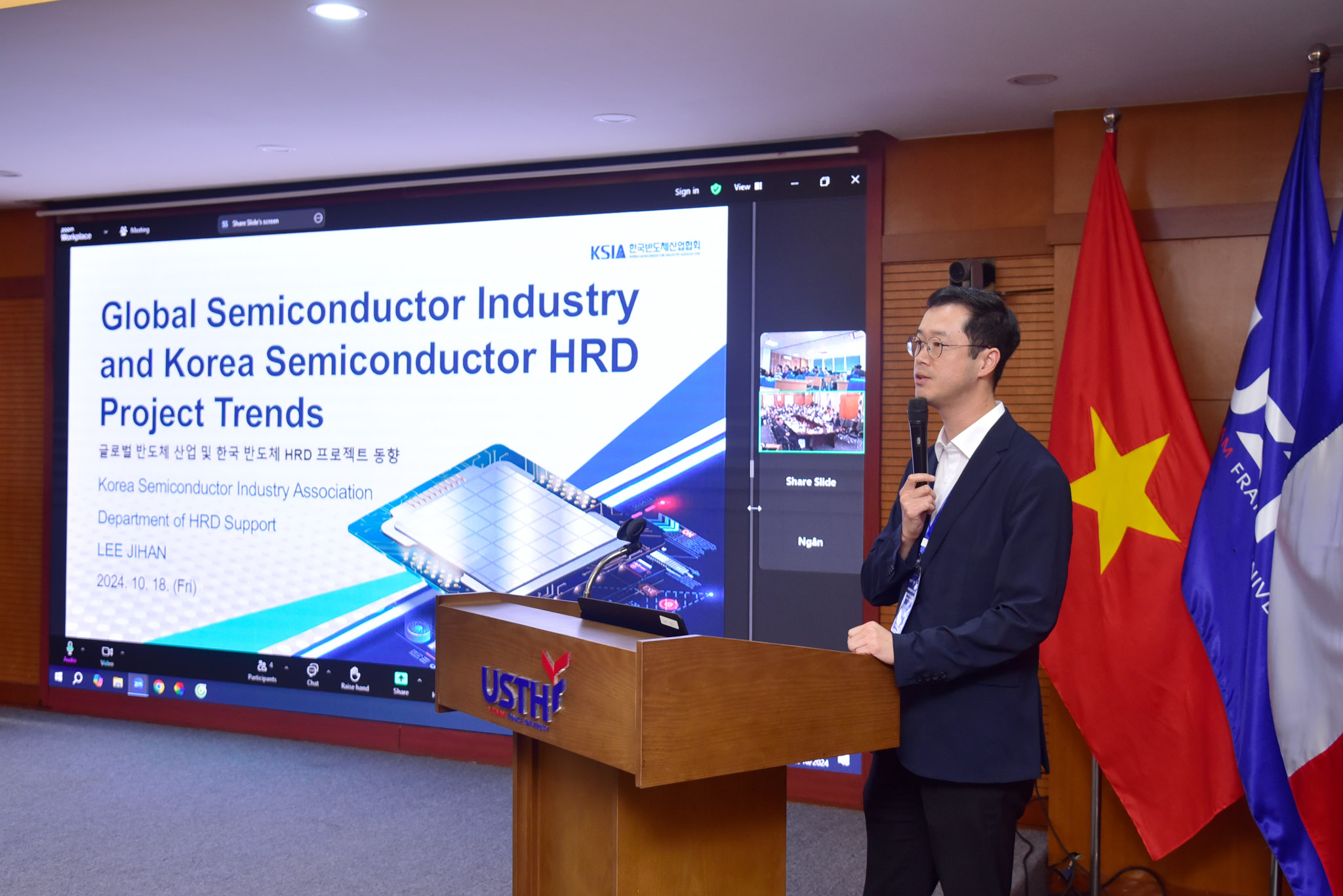
Assoc. Prof. Nguyen Van Quynh, Co-Director of the Department of Advanced Materials Science and Nanotechnology, shared information about the growing global demand for semiconductor human resources, particularly in Vietnam, as mobile and smart devices rapidly evolve. It is estimated that by 2030, the global market will need 1 million employees in the semiconductor field, and in Vietnam, about 50,000 will be required. Anticipating this growth, USTH began offering training in Semiconductor and IC Technology in 2024, leveraging its strong facilities, support from the Academy of Science, international partnerships, and training experience in related fields such as Advanced Materials Science and Nanotechnology, and Physics Engineering – Electronics. He highlighted the importance of close collaboration between academia and industry to develop relevant curricula that meet industry demands.
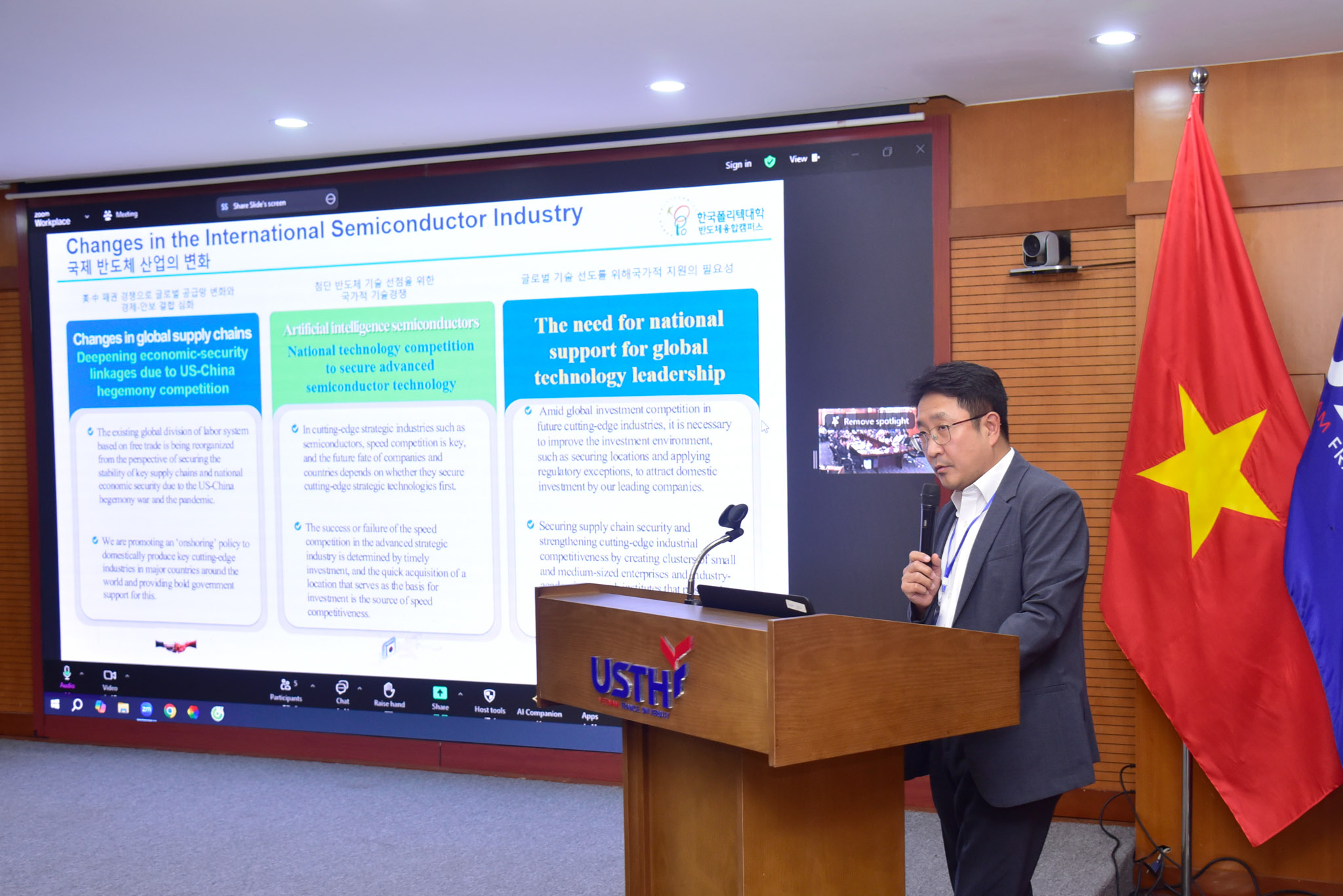
Following this, Mr. Lee Jihan, Director of KSIA, shared current global trends in the semiconductor industry and the strategies for workforce development, emphasizing the involvement of businesses in Korea’s training programs. He also introduced the Korean Semiconductor Academy, an initiative led by KSIA in collaboration with universities to provide practical, industry-linked training for students. He expressed hope that the cooperation between Vietnam and Korea in the semiconductor industry would further strengthen training and workforce development in both countries.
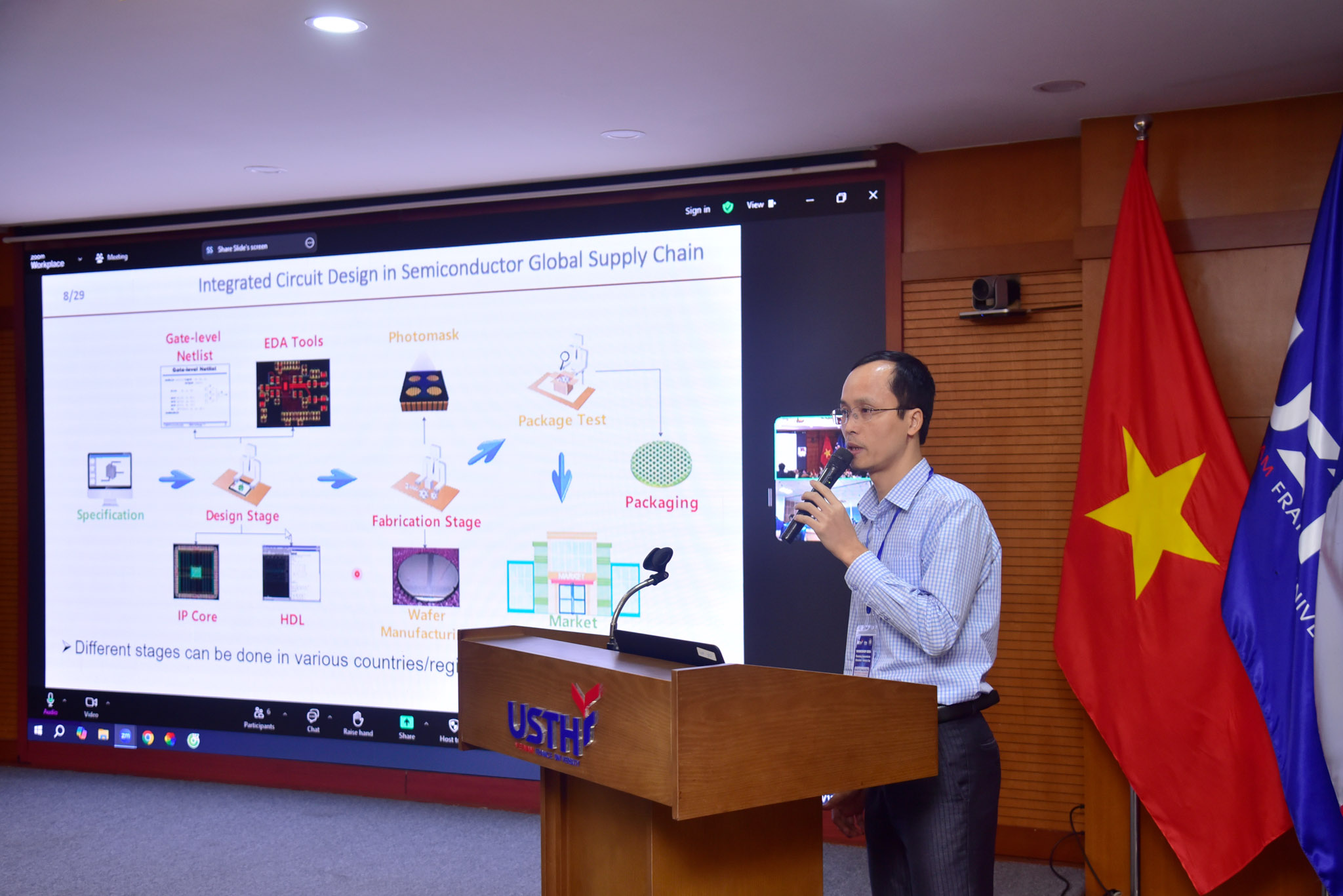
As an experienced semiconductor educator in Korea, Prof. Wang Hyunchul delivered two presentations on the training model at Korea Polytechnics and strategies for workforce development in the semiconductor industry. He emphasized the crucial role of university-business cooperation in designing practical training programs that prepare students with knowledge and skills to confidently enter the labor market.
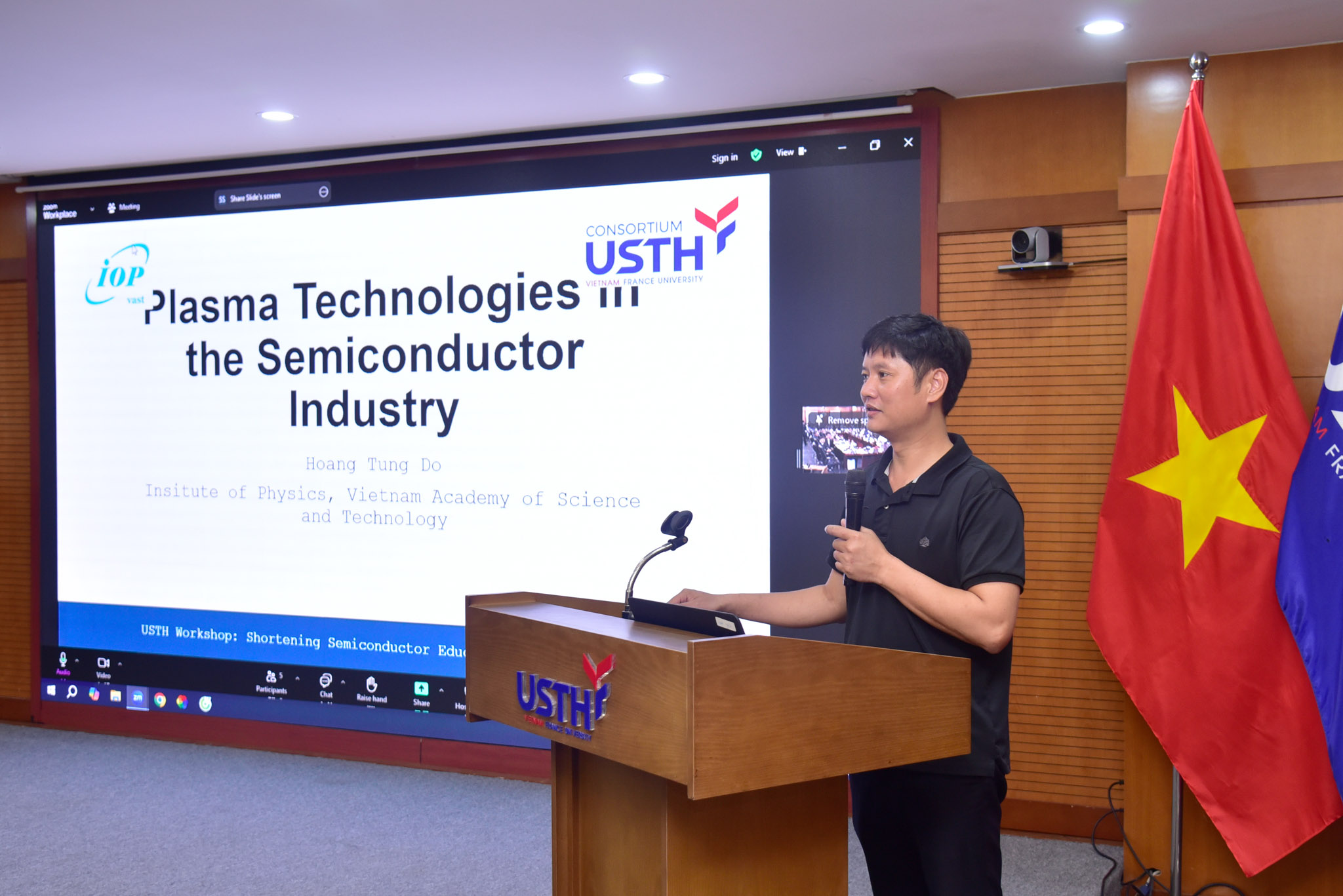
In the next part of the workshop, Assoc. Prof. Hoang Van Phuc, Director of the Institute of System Integration at Le Quy Don Technical University, presented the achievements of the institute’s research group in microchip design and hardware security. He stressed the importance of specialized skills in microchip design to enhance Vietnam’s competitiveness, meet the increasing demands of the semiconductor industry, and elevate the country’s position in the global supply chain.
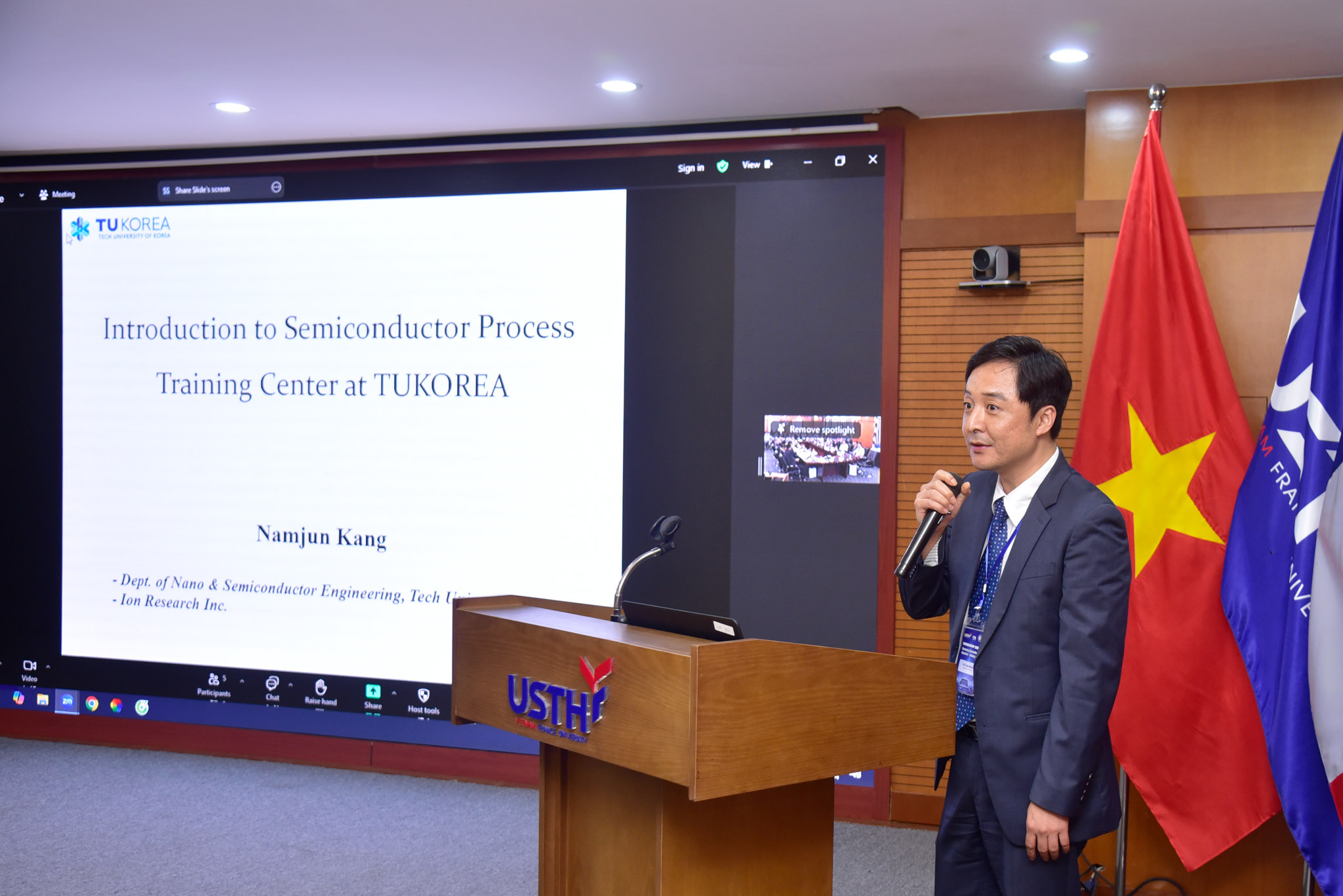
Plasma technology plays a crucial role in the semiconductor industry, offering key applications that enhance production efficiency and quality. At the event, Dr. Do Hoang Tung, Deputy Director of the Institute of Physics under the Vietnam Academy of Science and Technology, and Prof. Kang Namjun from the Tech University of Korea shared in-depth knowledge on plasma technology applications in the semiconductor industry. Additionally, Prof. Kang Namjun introduced his university’s plasma technology laboratory and training program.
The seminar concluded with a direct exchange between experts from training institutions and semiconductor manufacturing businesses from Vietnam and Korea with the participants, discussing strategies to enhance collaboration between education and the semiconductor industry.
Some photos of the events:




